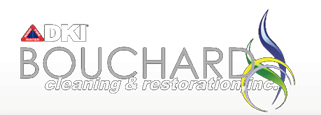Frozen pipes, ice dams, and snow damage
Frozen pipes, ice dams, and snow damage can be a nightmare.
Frozen pipes
When bitter cold occurs for several days, pipes can freeze. As the water inside the pipes expands, it continues to push until it finds a way out causing the pipe to break. When the weather begins to warm again, the water will run freely again. This is when you will realize that you have an issue as there will be water flowing from these broken pipes.
What can you do to protect your home from frozen pipes?
- When single-digit temperatures or below are in the forecast, turn one faucet on just enough that it is dripping to keep the water flowing. It takes longer for running water to freeze.
- Insulate your pipes and the areas around your pipes. Proper insulation in your home will protect not only your pipes but also other issues like ice dams from happening.
- Make sure to disconnect your hose from your house in the fall.
- Keep doors open to bathroom and kitchen cupboards to allow warmer air to circulate around the plumbing.
- If you are leaving during the winter months for any amount of time, keep your heat at a minimum of 55 degrees. Have a friend or family member check on your home. If pipes burst, it takes only a matter of hours to cause large amounts of damage to your home once the water begins to flow again.
- If you suspect that you have frozen pipes, shut off your water and call a plumber.
What causes an ice dam?
Icicles on your house may look pretty, but it is a sign that you have heat loss. Ice dams occur after a heavy snowfall when warm air in the attic causes the roof to warm and melt the snow. Water running down the roof refreezes when it reaches the colder edge of the roof, forming a mound of ice. The water then backs up behind the dam of ice and can leak into your home causing damage to your walls, ceilings, insulation, and other areas.
What can I do to prevent ice dams?
- Insulate! Insulate! Insulate! Proper insulation will prevent the roof from warm air and prevents damage from occurring.
- Keep your gutters clean.
- Invest in a snow rake, or have a professional shovel your roof for you. (Make sure they are properly insured)
- Consult a professional. A home inspector can perform an energy audit and let you know where you may be losing heat and where you may need additional insulation.
What kind of damage can snow cause?
Snow melt can leak through tiny cracks in your foundation. This can freeze and cause damage to your foundation. Heavy amounts of snow on a roof can cause the roof to collapse and can weigh down siding causing structural damage.
What can I do to prevent snow damage to my home and vehicle?
- Make sure your home has proper drainage to keep snow and melting snow from affecting your foundation and siding.
- Invest in a roof rake or have an insured professional remove excess snow from on and around your home.
- Remove excess snow from your vehicle. Snow can melt and refreeze as ice on your car risking damage to your vehicle and others if not removed.










